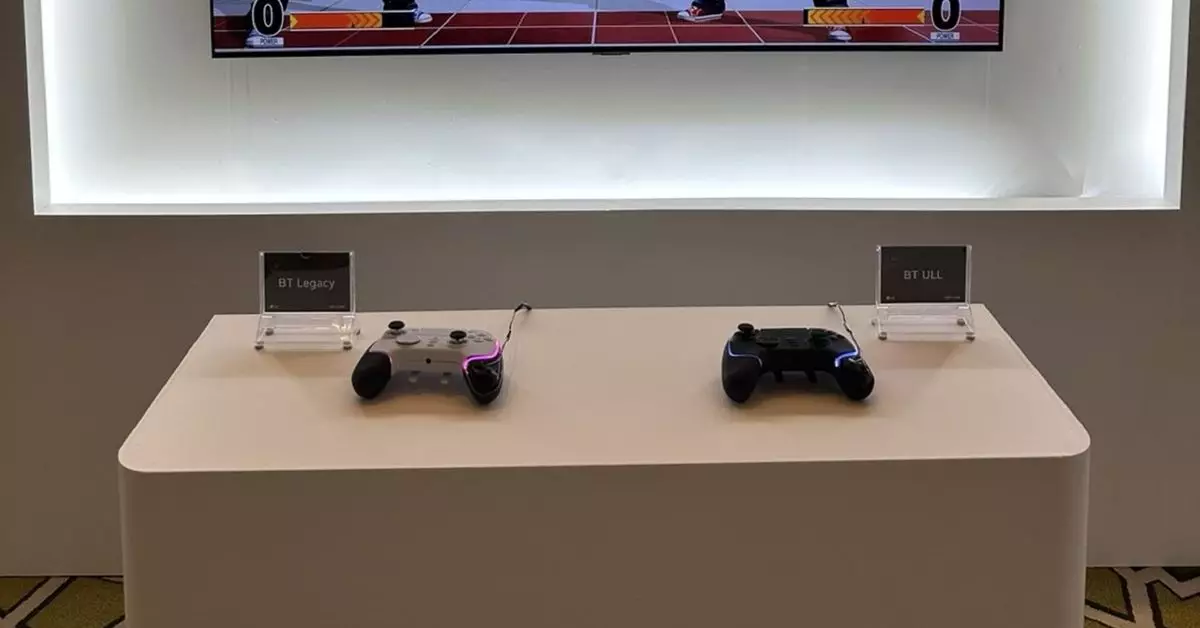In an ever-evolving gaming landscape, the pursuit of seamless gameplay experiences remains a top priority for developers and manufacturers alike. Recently, LG, in collaboration with Razer and MediaTek, announced their groundbreaking Bluetooth gaming controller designed to tackle one of the most critical issues: input lag. As cloud-based gaming gains popularity, maintaining low latency is essential for competitive players and casual gamers who seek immersive experiences. This innovative controller leverages Ultra-Low Latency (ULL) Bluetooth technology — a standard still being perfected but with the potential to change the perception of wireless gaming.
Understanding Input Lag
Input lag refers to the delay between a player’s action on a controller and the corresponding response on-screen. It is a vital metric, particularly for genres that require high precision, such as first-person shooters (FPS), racing simulations, and fighting games. Traditional wired controllers boast minimal input latency, making them a favorite among esports professionals. In contrast, Bluetooth controllers have historically struggled in this area, often exhibiting latency spikes due to various factors such as model design and environmental interferences. LG’s recent demonstration highlights how their ULL-equipped controller endeavors to bridge the gap between wired and wireless technology, achieving an impressive 1ms input lag.
During LG’s webOS Summit, attendees witnessed a live showcase of the ULL technology’s efficacy against a conventional Bluetooth controller. Reports indicate that the ULL-enabled controller displayed superior responsiveness, a promising sign for those apprehensive about transitioning from wired setups. This remarkable advancement could reshape expectations for gaming peripherals, with LG asserting its commitment to enhancing players’ experiences through innovation. The relevance and potential applications of this technology are vast, with cloud gaming poised to become even more accessible and engaging.
Many gaming companies have attempted to reduce input lag, including Google, which previously launched the Stadia service. Stadia’s strategy of allowing controllers to connect directly to its servers via Wi-Fi minimized Bluetooth latency but ultimately fell short, leading to the service’s discontinuation. However, the technology developed during that period has found new life in LG’s upcoming products. With recent updates to Stadia controllers enabling Bluetooth connectivity, the challenges surrounding input lag are beginning to find new solutions and, importantly, renewed interest from the industry.
Looking Ahead: Compatibility and Future Developments
As LG prepares to integrate this ULL tech into select 120Hz OLED and mini-LED TVs using MediaTek’s advanced chipsets by 2025, the ecosystem for gaming continues to expand. The anticipated certification program for third-party ULL-supported controllers will further enhance compatibility, with Razer being the first to meet LG’s standards. While specifics around the controller’s release remain sparse, with pricing and naming yet to be disclosed, anticipation builds for what could be a transformative product for gamers worldwide.
LG’s partnership with Razer and MediaTek could signal a new era in gaming peripherals. The development of the ULL Bluetooth controller underscores a notable shift toward addressing the long-standing challenge of input lag in wireless gaming, setting the stage for more exhilarating and responsive gaming experiences in the years to come. Whether competitive gamers or casual players, this innovation promises to reshape how we interact with games. As we await more details at upcoming events like CES 2024, one thing is clear: the future looks bright for cloud gaming enthusiasts.

